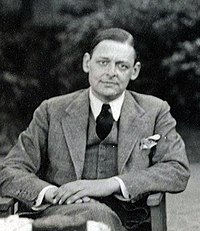Modernist poetry refers to a wide-ranging cultural movement that emerged in the early 20th century and is characterized by a radical break with traditional forms and values.
General Characteristics
|
|
Some of the general characteristics of modernist poetry include:
- Experimentation with form: Modernist poets often experimented with new forms of poetry, including free verse, fragmented or disjointed lines, and unconventional structures.
- Use of symbolism and allusion: Modernist poets frequently used symbols and allusions to represent complex ideas or emotions.
- Emphasis on individual experience: Modernist poets often focused on the individual experience rather than the collective or universal.
- Critique of society: Many modernist poets criticized the social and cultural norms of their time, often using their poetry as a means of social and political commentary.
- Ambiguity and fragmentation: Modernist poets often employed ambiguity and fragmentation to reflect the fragmented nature of modern life and thought.
- Stream-of-consciousness: Modernist poets sometimes used the stream-of-consciousness technique to explore the inner workings of the mind and to depict the flow of thoughts and emotions.
- Rejection of traditional literary conventions: Modernist poets rejected traditional literary conventions such as rhyme, meter, and narrative structure.
- Interest in multiple perspectives: Modernist poets often explored multiple perspectives and points of view, including those of marginalized and minority groups.
These characteristics are not exhaustive, but they provide a general sense of the key features of modernist poetry.
|

| W. H. Auden
|
|
|
|
|
| Hart Crane
|
|
|
|
| T. S. Eliot
|
|
|
|
|
| Robert Frost
|
|
|
|
| Langston Hughes
|
|
|
|
|
| Dylan Thomas
|
|
|
|
| William Butler Yeats
|
|
|
|



